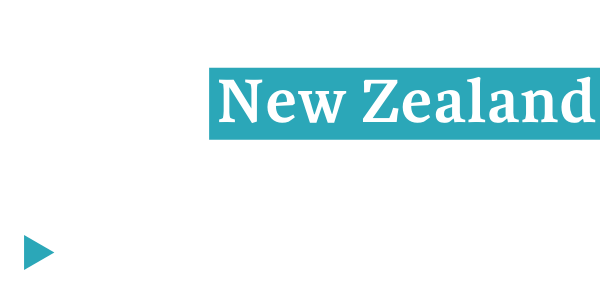
16 November 2021
Case study: Driving Transformation and Enabling Data for Positive Impact
The Inland Revenue Department has recently undertaken a huge transformation agenda for the entire organisation and central to this was its knowledge management, and data and analytics products. This session will look at how they:
- Built scalable data products for easy business consumption.
- Combined scalable analytics practices, data science platforms, and the right mix of people and processes.
- Set expectations within the organisation - Balancing the ‘delivering ‘value now’, with the art of the possible by adopting a system of continuous learning mentality.
- Is working with the organisation to integrate data planning, governance and analytics as an end to end operating system.
- Is innovating with business opportunities delivered through advanced analytics capabilities to solve some of the more complex decisions facing tax authorities today.
Speaking:

Tina Maclean
Data Science & Analytics Leader, Inland Revenue New Zealand
Case study: Driving Transformation and Enabling Data for Positive Impact
October 1 | 10:02 - 10:16
The Inland Revenue Department has recently undertaken a huge transformation agenda for the entire organisation and central to this was its knowledge management, and data and analytics products. This session will look at how they:
- Built scalable data products for easy business consumption.
- Combined scalable analytics practices, data science platforms, and the right mix of people and processes.
- Set expectations within the organisation - Balancing the ‘delivering ‘value now’, with the art of the possible by adopting a system of continuous learning mentality.
- Is working with the organisation to integrate data planning, governance and analytics as an end to end operating system.
- Is innovating with business opportunities delivered through advanced analytics capabilities to solve some of the more complex decisions facing tax authorities today.
Speaking:
AI in action: How to embed AI in your organisation
AI algorithms come in various shapes and forms. They can be extremely complex or be elegant in their simplicity, they can be developed on paper by a mathematician or by a computer scientist in python. But one thing all algorithms have in common is that most developed algorithms never will be used in practise. In this talk I will discuss how organisations can increase the success rate of their AI adoption, how to productionise AI faster and at scale, and how to build trust in an AI driven organisation.
Speaking:

Peter Jaksons
Customer Facing Data Scientist, AcumenBI

Daniel Gargiulo
Practice Lead, AcumenBI

Aaron Young
Solutions Architect, Qlik
AI in action: How to embed AI in your organisation
May 18 | 10:18 - 10:43
AI algorithms come in various shapes and forms. They can be extremely complex or be elegant in their simplicity, they can be developed on paper by a mathematician or by a computer scientist in python. But one thing all algorithms have in common is that most developed algorithms never will be used in practise. In this talk I will discuss how organisations can increase the success rate of their AI adoption, how to productionise AI faster and at scale, and how to build trust in an AI driven organisation.
Speaking:
Keynote Perspectives Panel: Culture is King: Fostering a Culture to Support the Latest Tech
We know that prioritising data is something that comes from the top management – but how do we get this to happen? This panel will examine:
- Becoming a truly data enabled business - What organisational culture is required?
- Accelerating change through technology.
- Establishing a start-up-like culture to foster innovation
- Adjusting strategies to emphasise data and analytics
- How your analytics team can involve the sponsors on the journey with them
- How to get your execs to ask for what they truly need
- What does it mean to embrace a data culture?
- How do data and analytics help execs to sell their story?
- Why you need to know your stakeholders and know their data level of maturity
- How to you take them on the journey of what they can achieve with the data
Speaking:

Gavin Jones
Country Manager, Tableau Australia and New Zealand

Terri Carajannis
Chief Digital Officer, Harrison Grierson

Nitya Shankar
Change Lead - Data Transformation Programme, Westpac New Zealand

Tracy Parsons
Chief Data Officer, New Zealand Ministry of Foreign Affairs & Trade | Manatū Aorere
Keynote Perspectives Panel: Culture is King: Fostering a Culture to Support the Latest Tech
May 18 | 10:43 - 11:30
We know that prioritising data is something that comes from the top management – but how do we get this to happen? This panel will examine:
- Becoming a truly data enabled business - What organisational culture is required?
- Accelerating change through technology.
- Establishing a start-up-like culture to foster innovation
- Adjusting strategies to emphasise data and analytics
- How your analytics team can involve the sponsors on the journey with them
- How to get your execs to ask for what they truly need
- What does it mean to embrace a data culture?
- How do data and analytics help execs to sell their story?
- Why you need to know your stakeholders and know their data level of maturity
- How to you take them on the journey of what they can achieve with the data
Speaking:
Unlocking your Investment in Customer Data
To overcome these challenges, organisations need to take a few steps back and invest in the basics and strengthen their data and analytics foundations in order to leapfrog the competition.
In this session, we will present our learnings from the field across industry, customer data frameworks, and the things we’ve seen work for our clients.
- What are we investing in, and why does it continue to fail to deliver customer data and analytics?
- How do we evaluate what capability gaps exist?
- What emerging technologies exist?
- Build or buy: What principles will guide our decision?
- How does it all come together to deliver the CX promise?
- A data and analytics roadmap for CX
Speaking:

Alan Bluwol
Director and Head of Customer Engagement, Servian
Unlocking your Investment in Customer Data
May 18 | 11:30 - 11:52
To overcome these challenges, organisations need to take a few steps back and invest in the basics and strengthen their data and analytics foundations in order to leapfrog the competition.
In this session, we will present our learnings from the field across industry, customer data frameworks, and the things we’ve seen work for our clients.
- What are we investing in, and why does it continue to fail to deliver customer data and analytics?
- How do we evaluate what capability gaps exist?
- What emerging technologies exist?
- Build or buy: What principles will guide our decision?
- How does it all come together to deliver the CX promise?
- A data and analytics roadmap for CX
Speaking:
What’s required of data & analytics teams in the future - and their leaders?
- Future skill set and key data roles
- Embedding data into business DNA and decision making
- Key considerations: data products mindset; data partnerships; data literacy, self-service and citizen data scientists
- Building a high performing team, and retaining it
- Defining a vision, obtaining Executive buy-in and setting the right expectations
Speaking:

Kari Jones
General Manager Data & Analytics, New Zealand Post
What’s required of data & analytics teams in the future - and their leaders?
May 18 | 11:52 - 12:16
- Future skill set and key data roles
- Embedding data into business DNA and decision making
- Key considerations: data products mindset; data partnerships; data literacy, self-service and citizen data scientists
- Building a high performing team, and retaining it
- Defining a vision, obtaining Executive buy-in and setting the right expectations
Speaking:
Delivering to your Business's Vision for AI/ML
Speaking:

Simon King
Head of Data & Software, OSS Group
Keynote Panel Discussion: The Future of Data and Analytics post-COVID-19
Correlation tells you how numbers interacted in the past, but it doesn’t tell you the structure of that data. After a shock, the ability for data leaders to forecast future scenarios is so much harder, as you can’t just draw on previous trends. This panel will examine:
- What will the post-COVID business look like?
- To what extent will data and analytics play a more important role in most organisations?
- What digital trends have been accelerated for organisations?
- How do data and analytics leaders support organisations during a crisis?
- Do we see a reverting back to a tried and tested (and not necessarily right) data approach during a crisis?
- What happens when you cannot use historical data to make decisions?
- How have businesses had to change their approach around systems and frameworks?
Speaking:

Peter Gavin
GM, Data & Analytics, ANZ Bank New Zealand

David Thomas
Group Manager – Customer Analytics and Insights, Genesis

Terry Goodman
Managing Director & Principal Consultant, Intech Solutions Pty Ltd
Keynote Panel Discussion: The Future of Data and Analytics post-COVID-19
May 18 | 12:38 - 13:23
Correlation tells you how numbers interacted in the past, but it doesn’t tell you the structure of that data. After a shock, the ability for data leaders to forecast future scenarios is so much harder, as you can’t just draw on previous trends. This panel will examine:
- What will the post-COVID business look like?
- To what extent will data and analytics play a more important role in most organisations?
- What digital trends have been accelerated for organisations?
- How do data and analytics leaders support organisations during a crisis?
- Do we see a reverting back to a tried and tested (and not necessarily right) data approach during a crisis?
- What happens when you cannot use historical data to make decisions?
- How have businesses had to change their approach around systems and frameworks?
Speaking:
Data Virtualization: The Smartest Way to Creating a Data Marketplace
Today most organizations rely on data-driven insights to make critical operational and strategic decisions. But given the complexity and vastness of the modern enterprise data ecosystem, finding the right data set and extracting actionable insights is an extremely complicated and time-consuming process. That’s where data virtualization can be used to abstract that complexity and introduce simplicity.
Data Virtualization is a modern data integration technique that uses a single unified semantic layer to give you visibility into all of your data assets so that they can be better leveraged across the business.
Attend this session to understand how data virtualization can be used to:
- Complete the self-service model by allowing business users to easily discover data for their specific business purpose
- Promote trust in data and encourage re-use of existing data assets
- Apply consistent security and governance policies across the enterprise data landscape
Speaking:

Katrina Briedis
Sr. Product Marketing Manager, APAC, Denodo
Data Virtualization: The Smartest Way to Creating a Data Marketplace
May 18 | 13:23 - 13:46
Today most organizations rely on data-driven insights to make critical operational and strategic decisions. But given the complexity and vastness of the modern enterprise data ecosystem, finding the right data set and extracting actionable insights is an extremely complicated and time-consuming process. That’s where data virtualization can be used to abstract that complexity and introduce simplicity.
Data Virtualization is a modern data integration technique that uses a single unified semantic layer to give you visibility into all of your data assets so that they can be better leveraged across the business.
Attend this session to understand how data virtualization can be used to:
- Complete the self-service model by allowing business users to easily discover data for their specific business purpose
- Promote trust in data and encourage re-use of existing data assets
- Apply consistent security and governance policies across the enterprise data landscape
Speaking:
Talent Gap Interactive (extended session): Building a Winning Team: To Hire or Train? Organisational Structure and Skills Gaps – Getting the Structure Right
Determining the right blend of job functions for your data analytics projects.
Upskill, adapt and evolve. Learn how organisations are enabling change through diversity. This discussion session will look at:
- Broadening the funnel of diverse applicants.
- Encouraging more diverse groups to apply.
- What is a diverse workforce – examining the blend of personality traits that make for a winning team.
- How to encourage more diverse talent beyond just the recruitment phase - Keeping diverse groups engaged long term.
- Achieving true diversity of teams – not just for show
- How to create diversity of thought?
- How it can correct inherent bias
- Data Literacy;
- Talent Gap;
- Leadership
- Upskilling
Speaking:

Charlotte Davies
Manager Joint Targeting & Analytics at Immigration NZ, Ministry of Business, Innovation and Employment

Anna Tarasoff
Head of Data and Analytics Capability, Southern Cross Health Society

Shagen Ganason
Head of Internal Audit, AIA

Saurabh Deshpande
Chapter Lead Data Engineering, Spark New Zealand

Kitty Ling
Senior Manager / NZ Lead Retail Analytics, Woolworths NZ Limited
Talent Gap Interactive (extended session): Building a Winning Team: To Hire or Train? Organisational Structure and Skills Gaps – Getting the Structure Right
May 19 | 13:46 - 14:27
Determining the right blend of job functions for your data analytics projects.
Upskill, adapt and evolve. Learn how organisations are enabling change through diversity. This discussion session will look at:
- Broadening the funnel of diverse applicants.
- Encouraging more diverse groups to apply.
- What is a diverse workforce – examining the blend of personality traits that make for a winning team.
- How to encourage more diverse talent beyond just the recruitment phase - Keeping diverse groups engaged long term.
- Achieving true diversity of teams – not just for show
- How to create diversity of thought?
- How it can correct inherent bias
- Data Literacy;
- Talent Gap;
- Leadership
- Upskilling
Speaking:
17 November 2021
Building Data Products with EROAD Using Snowflake’s Data Cloud
Data proliferation, limited access to data, and high technical overheads when building data products are common challenges for many organisations. EROAD engaged with Snowflake to solve these challenges. Tune in to this session as EROAD shares their data journey with Snowflake to deliver:
- Integrated EROAD data driving simplified business insights through Snowflake data sharing
- Giving analysts their time back to focus on solving business problems, not collating data
- Removing data silos to show a complete historical picture
- Providing best of breed service for customers
The session will cover challenges, before and after architecture as well as a variety of outcomes that EROAD delivered successfully using the power of Snowflake's Platform.
Speaking:

Ben Duggan
Project Manager, EROAD, Snowflake
Building Data Products with EROAD Using Snowflake’s Data Cloud
October 1 | 10:33 - 11:00
Data proliferation, limited access to data, and high technical overheads when building data products are common challenges for many organisations. EROAD engaged with Snowflake to solve these challenges. Tune in to this session as EROAD shares their data journey with Snowflake to deliver:
- Integrated EROAD data driving simplified business insights through Snowflake data sharing
- Giving analysts their time back to focus on solving business problems, not collating data
- Removing data silos to show a complete historical picture
- Providing best of breed service for customers
The session will cover challenges, before and after architecture as well as a variety of outcomes that EROAD delivered successfully using the power of Snowflake's Platform.
Speaking:
Panel: Viewing Data Governance through a Risk Lens
- Deciding the critical data elements of each business
- A risk based approach to data quality and lineage
- Private information and how to manage it
- Ensuring Data risk is minimised from a strategic and operational point of view
- Managing issues of stewardship and custodianship
- Where is our data and what data do we have? Why is there a habit of always collecting?
- Life cycle management and data disposal
- How the data asset is required, acquired and used
- Using awareness and education to encourage business units to take more ownership of their data
- Bringing the data under the appropriate technical controls
Speaking:

Bryan Ng
Head of Data and Insights, Stuff New Zealand

Anna Tarasoff
Head of Data and Analytics Capability, Southern Cross Health Society

Habib Baluwala
Chapter Lead - Data Science, Spark New Zealand

Dr Vikash Kumar
Manager, Advanced Analytics & Modelling, NZ Transport Agency

Pieta Brown
NZ Data Science & Analytics Forum
Panel: Viewing Data Governance through a Risk Lens
October 1 | 11:00 - 11:40
- Deciding the critical data elements of each business
- A risk based approach to data quality and lineage
- Private information and how to manage it
- Ensuring Data risk is minimised from a strategic and operational point of view
- Managing issues of stewardship and custodianship
- Where is our data and what data do we have? Why is there a habit of always collecting?
- Life cycle management and data disposal
- How the data asset is required, acquired and used
- Using awareness and education to encourage business units to take more ownership of their data
- Bringing the data under the appropriate technical controls
Speaking:
The Rise of Data Operations (DataOps)
The more data management tasks you can operationalise, the more resources you have for adapting to change. We believe that a DataOps mindset is now more critical than ever, as most organisations tackle increased complexity in their data landscape. In this interview with data industry veteran Girish Pancha, we will look at the importance of DataOps for modern data integration.
- Examining the history of data management
- The importance of DataOps to ensuring resiliency and agility in the face of constant change
- The future of data management
Speaking:

Girish Pancha
CEO, StreamSets
The Rise of Data Operations (DataOps)
May 18 | 11:40 - 12:04
The more data management tasks you can operationalise, the more resources you have for adapting to change. We believe that a DataOps mindset is now more critical than ever, as most organisations tackle increased complexity in their data landscape. In this interview with data industry veteran Girish Pancha, we will look at the importance of DataOps for modern data integration.
- Examining the history of data management
- The importance of DataOps to ensuring resiliency and agility in the face of constant change
- The future of data management
Speaking:
What does a good data governance structure look like?
- Who should be part of the committee?
- What frameworks should be used?
- Strategies for ensuring data governance is prioritised within your organisation
- What are the minimums any business needs to do to get a good foundation?
- How do we handle PII (personal identifying information)?
Speaking:

Susan Needham
Chapter Lead Enterprise Data Governance – Enterprise Information Management (EIM),Westpac New Zealand
What does a good data governance structure look like?
May 20 | 12:04 - 12:21
- Who should be part of the committee?
- What frameworks should be used?
- Strategies for ensuring data governance is prioritised within your organisation
- What are the minimums any business needs to do to get a good foundation?
- How do we handle PII (personal identifying information)?
Speaking:
To AI, or not to AI, when is the question?
AI has been touted as the silver bullet to all our problems. When data and ML/AI is done right, organisations will differentiate themselves from their competitors, improve customer experience, accelerate business goals and long-term objectives. Not done properly with poor foundations, organisations could face significant reputation, regulatory, operational, financial and strategic ramifications and/or fines.
“Paradoxically, data is the most under-valued and de-glamorised aspect of AI” say Google researchers in a recent paper. Most organisations still have significant work to do to bring data and analytics to the forefront of business thinking and ensure it is treated as you would any other asset. Gladwin will cover some of the typical risks and issues that hinder ML/AI projects and some ways to manage their risks.
Speaking:

Gladwin Mendez
Data and Technology Operations Officer, Fisher Funds
To AI, or not to AI, when is the question?
May 20 | 12:21 - 12:57
AI has been touted as the silver bullet to all our problems. When data and ML/AI is done right, organisations will differentiate themselves from their competitors, improve customer experience, accelerate business goals and long-term objectives. Not done properly with poor foundations, organisations could face significant reputation, regulatory, operational, financial and strategic ramifications and/or fines.
“Paradoxically, data is the most under-valued and de-glamorised aspect of AI” say Google researchers in a recent paper. Most organisations still have significant work to do to bring data and analytics to the forefront of business thinking and ensure it is treated as you would any other asset. Gladwin will cover some of the typical risks and issues that hinder ML/AI projects and some ways to manage their risks.
Speaking:
Case Study: Northern Region Data Platform and Integrated Qlik Sense Dashboard built for COVID response
- The value of a dashboard/ data explorer over a comprehensive data model
- Delivering self-service analytics for an emerging disease (including our a COVID Status Logic Algorithm)
- The journey from an on-premise platform to a Snowflake/ Qlik Sense SaaS platform in a high change environment
Speaking:

Delwyn Armstrong
Head of Analytics, Waitematā District Health Board
Case Study: Northern Region Data Platform and Integrated Qlik Sense Dashboard built for COVID response
October 1 | 12:57 - 13:20
- The value of a dashboard/ data explorer over a comprehensive data model
- Delivering self-service analytics for an emerging disease (including our a COVID Status Logic Algorithm)
- The journey from an on-premise platform to a Snowflake/ Qlik Sense SaaS platform in a high change environment
Speaking:
Case Study: Machine learning for social good – getting to ‘go’
There is a large gap between the theory and practice of machine learning for social good. This session explains how a human-centred approach can help, using case studies of machine learning tools that support frontline screening decisions about child maltreatment allegations.
The first case study is the Allegheny Family Screening Tool, developed and implemented by the Centre for Social Data Analytics (CSDA, AUT) and the Allegheny County Department of Human Services (PA, United States), which informs the decisions of frontline staff who screen child maltreatment allegations in Allegheny County. This session will cover both the technical and sociotechnical aspects of the development, deployment and management of this tool, which has been in use since 2016, and two other CSDA-developed child maltreatment decision aid tools for counties in Colorado, US.
Speaking:

Dr Nina Anchugina
Deputy Director and Senior Data Scientist, Centre for Social Data Analytics (CSDA), Auckland University of Technology
Case Study: Machine learning for social good – getting to ‘go’
May 20 | 13:25 - 13:50
There is a large gap between the theory and practice of machine learning for social good. This session explains how a human-centred approach can help, using case studies of machine learning tools that support frontline screening decisions about child maltreatment allegations.
The first case study is the Allegheny Family Screening Tool, developed and implemented by the Centre for Social Data Analytics (CSDA, AUT) and the Allegheny County Department of Human Services (PA, United States), which informs the decisions of frontline staff who screen child maltreatment allegations in Allegheny County. This session will cover both the technical and sociotechnical aspects of the development, deployment and management of this tool, which has been in use since 2016, and two other CSDA-developed child maltreatment decision aid tools for counties in Colorado, US.
Speaking:
Case study: Data Streaming platform and supporting Realtime ML scoring
Speaking:

Andrew Bates
Chief Technical Officer, Harmoney Ltd
The following Terms and Conditions (“Terms”) apply to you or your proxy in relation to your registration for this Corinium Global Intelligence (“Corinium”) offer. The definition of “registration” for purposes of these Terms will include all anyone who completes the above form. By entering your contact details, you agree to these Terms.
All registrations are subject to final approval.
15% GST will be applied upon registration. All prices quoted are exclusive of GST.
Please note: No additional discounts can be applied on top of existing special offers or discounts.
Vendor prices apply to any delegate from a company providing technology or services to end-user companies. Contractors who are attending on behalf of end users are expected to register as vendors. Any vendor / solution provider company that registers at the end-user rate will automatically be charged at the vendor rate. Completing this registration form means you agree to this condition of registration.
As soon as we have processed your registration, we will email you confirmation. We look forward to seeing you at the conference.
For any questions concerning your registration, please email us at info@coriniumintel.com
Payment terms
Payment is due in full upon completion and on submission of this registration form. By returning this registration form you agree to Corinium issuing an invoice or charging your credit card for the amount stated above and you agree to pay Corinium the price in order to secure your conference package. Your registration will not be confirmed until payment has been made by credit card or cleared funds are received in full. Admission to the conference will be refused if payment has not been received. All payments will be issued with a receipt and the delegate is liable to pay any necessary taxes and service fees where applicable.
Cancellation and substitution policy
Cancellations must be received in writing and we do not offer refunds once payment has been made. If the cancellation is received more than 14 days before the conference, attendees will receive a full credit to a future conference. Cancellations received 14 days or less (including the fourteenth day) prior to the conference will be liable for the full fee. A substitution from the same organisation can be made at any time in writing at no extra charge. In the event that Corinium Global Intelligence cancels a conference, payments received at the cancellation date will be credited towards attendance at a future conference or in the event of postponement by Corinium Global Intelligence, towards the rescheduled date. Credit notes remain valid for twelve months
Changes to conference and agenda
Corinium Global Intelligence reserves the right to postpone or cancel an event, to change the location or alter the advertised speakers for an event.
Corinium Global Intelligence is not responsible for any loss or damage as a result of substitution, alteration, postponement or cancellation of an event due to causes beyond its control including without limitation, acts of God, natural disasters, sabotage, accident, trade or industrial disputes, terrorism or hostilities. In the event that a conference is cancelled, Corinium Global Intelligence is not liable for any costs incurred by delegates in connection with their attendance.
Occasionally it is necessary for reasons beyond our control to alter the content and timing of the programme, venue or the identity of the speakers without any liability to the delegates. Changes to the agenda will be updated on our website as soon as possible.
Disclosure of your information.
You agree that we have the right to share such portions of your personal information as may be appropriate with selected third parties including: Business partners, suppliers and sub-contractors for the performance of any contract we enter into with either them or you.
Professional organisations involved in the provision of services for the event contracted for. Sponsors - we may share your information with event sponsors who may contact you in relation to special offers, products and services related to your role within your company. You may also opt-out at any time by emailing info@coriniumintel.com.
Data protection
The personal information shown and/or provided by you will be held in a database. It may be used to keep you up to date with developments in your industry. Sometimes your details may be obtained or made available to third parties for marketing purposes. If you do not with your details to be used for this purpose, please email us at info@coriniumintel.com
Please refer to our Privacy Policy for further details.

